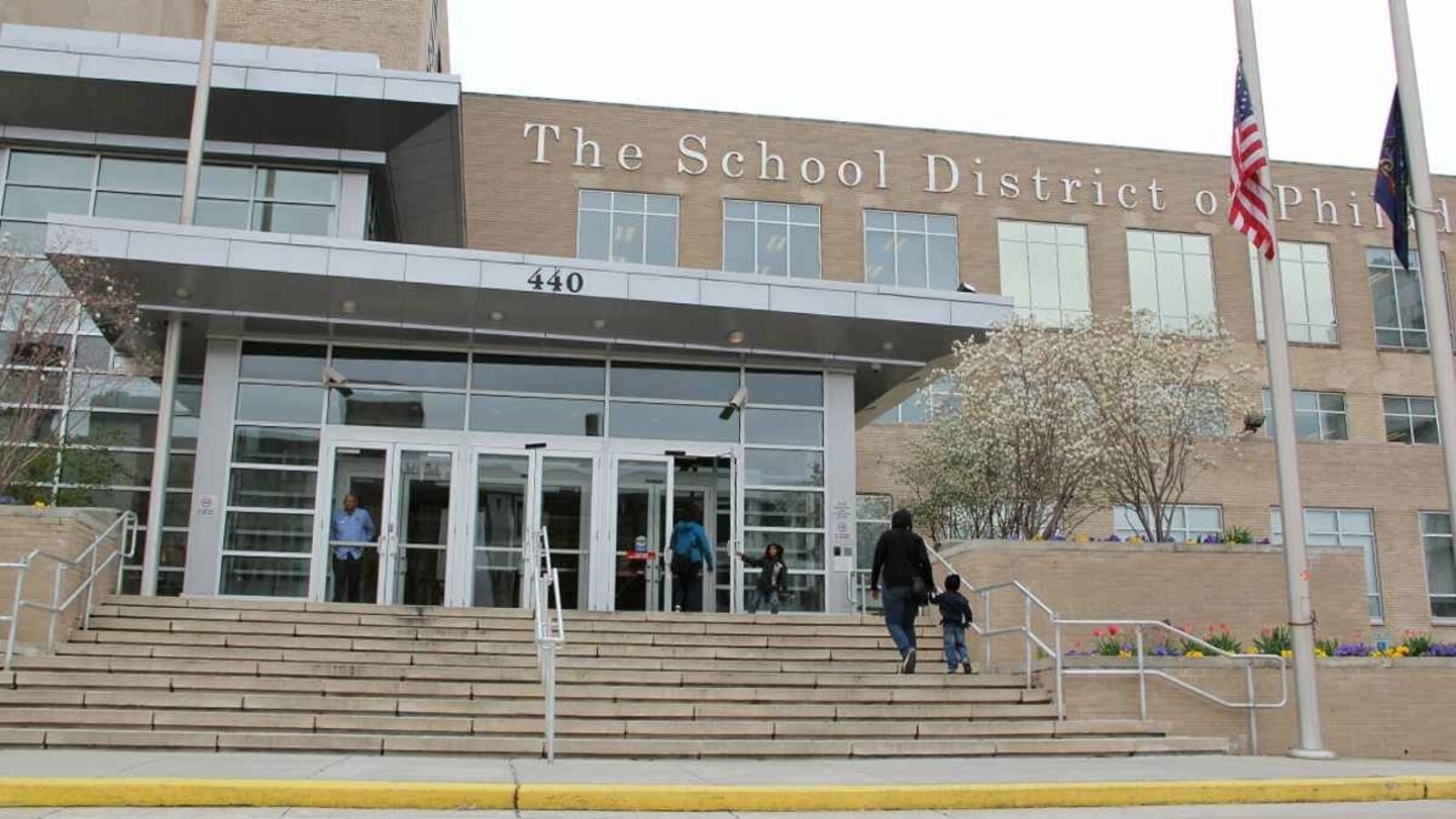This article was originally published in The Notebook. In August 2020, The Notebook became Chalkbeat Philadelphia.
Philadelphia’s School Reform Commission adopted a lump sum budget Thursday, but not before a surprisingly frisky conversation that forecasted a potential showdown with city and state officials.
The adopted lump sum budget would leave Philadelphia schools with a small fund balance after fiscal year 2018, but does not include any substantial new investments in city schools. By fiscal year 2019, those reserves would evaporate and the city’s public school system would be left $138 million in the red.
The commissioners voted 3-1 to approve the budget, with commissioner Bill Green casting the lone "no" vote.
Green dissented because he believes the budget presented Thursday doesn’t include the money needed to sufficiently fund Philadelphia’s schools and produce needed academic gains. In essence, Green was asking the district to adopt a more aggressive budget that would force its main funders — the city and state governments — to think hard about what the city’s schools truly need.
Green argued that by rejecting the budget, commissioners would send a message that simply maintaining the status quo wasn’t acceptable.
"Why should I approve a budget that doesn’t spend what we need to spend?" Green asked. "Why wouldn’t I just vote ‘no’ and tell the state and city…to step up? Why should I acquiesce to this?"
Though Green’s push to reject the lump sum budget fell short, his argument did find a warm reception among fellow commissioners and members of the public.
Superintendent William Hite conceded that the district’s current investments — which total $526 million over the next five years and help restore much of what was slashed during past periods of austerity — still are not large enough to, as Green put it, "educate the children of Philadelphia."
"I agree with commissioner Green that it is disappointing we have insufficient support from our local and state legislators," commissioner Farah Jimenez said. "I do think the pressure needs to remain."
The state and city are projected to send $1.5 billion and $1.2 billion to the district respectively in the current fiscal year. But the district’s costs are rising at about double the rate of its revenues are.
In a subsequent resolution, the SRC asked district officials to draw up a new budget that, in SRC chair Joyce Wilkerson’s terms, "reflects the real needs of the children of Philadelphia." The SRC approved this second resolution unanimously, meaning the district will now have to craft a more ambitious budget for the SRC’s review.
"We are not receiving adequate funding, but I think it makes sense to spend time to develop what a real budget would look like for the district," said SRC chair Joyce Wilkerson.
All of this activity and agita came with little warning during a hearing many expected to proceed without incident.
The back and forth underscored the fragility of the school district’s budget even in times of relative stability. It also sets a potential collision course between school officials and the lawmakers that fund Philadelphia’s schools.
District officials say right now they don’t have the money needed to offer more than the $150-million deal they’ve already submitted to the teacher’s union for a new contract. Nor, they say, do they have the dollars necessary to properly educate children in a city where more than one quarter of residents live in poverty. Even to simply maintain current spending levels will eventually require more money than the district currently receives.
"It sounds like the only decisions we have available to us are either to secure more from the state and the city in terms of revenue or to cut in painful ways," said Jimenez.


